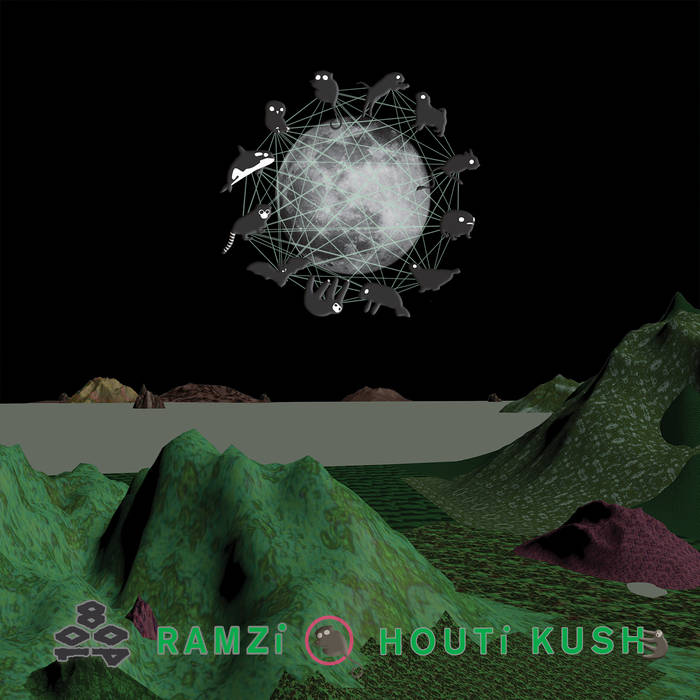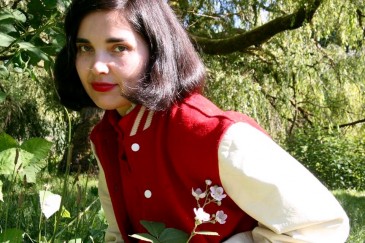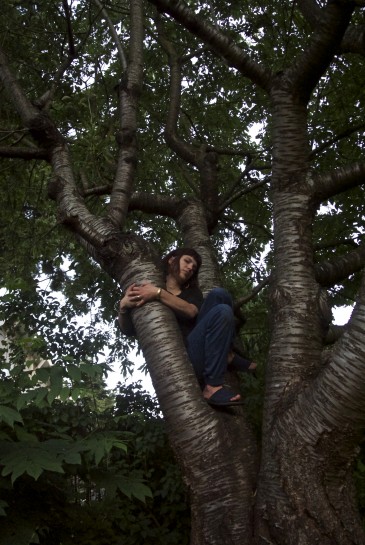
Vancouver is lovely in the Summer: another day of drought, a scorcher, an uptick in forest fire probability. I’m sitting in Mount Pleasant on a domesticated parcel of land with Phoebé Guillemot, the woman behind Ramzi. I bring the subject of sarcasm in music up, looking for a way to identify Ramzi’s mutant dance rhythms against her contemporaries. Guillemot speaks decisively, interpreting the hype of non-spirited and formatted sound. “I think the best example is PC Music. At first they were making a joke of the commercial, but now they are totally what they make fun of. I think my music is the opposite of that, because I put so much meaning into it. There’s nothing that is just for the hype or attention. It’s really personal. Even if it can sound absurd, it’s the opposite of a joke. It’s how to express my vision of life.”
Guillemot is a recent transplant to the Pacific Northwest from Montreal. With her new album Houti Kush imminent on Vancouver’s 1080p, and another likely to follow on Genero, Guillemot is feeling positive. “I had to struggle the first month [of moving], but I’ve been so lucky. I’ve felt more at home than in Montreal. I was so sad there. People are like ‘how come you don’t find it hard to integrate?’ For me it was easy thanks to my music. I’m really grateful. Thanks to Ramzi I was welcome already.”
Ramzi is the form through which Guillemot explores world music and alien electronics, transformed into mutating rhythms. She describes Ramzi as a paroxysm of dualisms: male/female, genuine/perverse, free/captive, etc. The animal murmurs and tactility of Ramzi’s music evokes lush biospheres: places of refuge and wildlife, but also zones of harshness and ecological intensity. Houti Kush is caught between worlds, showing a new side of this concept: “It’s the least weird of what I’ve done. It’s almost romantic. The A side is the Ramzi world being happy. The B side, you feel the trip, the danger coming.”
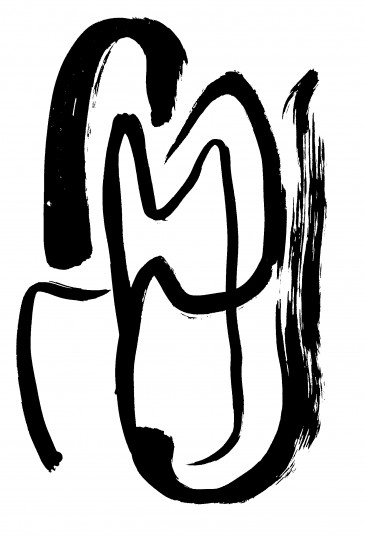
“With Ramzi I feel like I can get lost. It’s a world I keep expanding. I like the idea to develop an allegory of what I think at a political perspective, this war between different forces: Aliens, Zombies, Children. The Aliens are like greys, reptilians, the high political power. The Zombies are the masses, controlled by the aliens, that try to invade the natural world. Children and the animals and nature are holding tight to defend. For me it’s just like how to preserve what we grew up with.” Guillemot continues, “I was really attached to my childhood. I grew up not just in the city, but also in the country, and I was just happy to be out, imaginative, to create… it’s just that now I give more sense to it. It’s my inner child talking as Ramzi.”
Ramzi, the feral child who Guillemot compares to the Jungle Book’s Mowgli, is joined by her other alter ego on Houti Kush, Houti. “When my computer got stolen in San Francisco, I was like ‘Ramzi is dead,’ a sign that I had to move forward. Maybe I should be called Houti instead. I thought I lost everything but I found my hard drive in Vancouver. I was able to get my old project, so Ramzi didn’t die. But Houti stayed a bit. I [Houti] started to sing with more autotune. It started to be more feminine. So I was like ‘OK Houti is this new feminine presence in the Ramzi world.’”
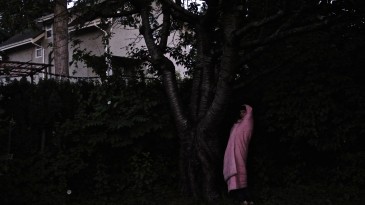
The bombastic samples of previous Ramzi albums evince Guillemot’s love for the language of dancehall. But Guillemot’s own voice, as both Ramzi and Houti, is more prominent on Houti Kush than ever. Traces of her touch proliferate throughout the entire album: biological noises, but also a MIDI emphasis, video game chirps and ringtones floating throughout a synthesized jungle. The album cover features Guillemot’s visual art, an alien CGI landscape stamped with a zodiac comprising silhouettes of baby animals encircling a moon. Uncanny neoteny runs through Ramzi’s aesthetic. Past music videos montage owls, tarsiers, creatures whose eyes seem too large for their sockets. Ramzi itself is described as assuming the form of a pygmy tarsier, an animal threatened by deforestation and safeguarded by cultural superstitions.
“I talk about it but I don’t want to make it the focus…I don’t feel the need to talk about it unless it’s to produce new material with it.” Describing her process, Guillemot says “It’s really intuitive. I just get lost. I’m guided by the sound I like and also feelings that I can get through music.”
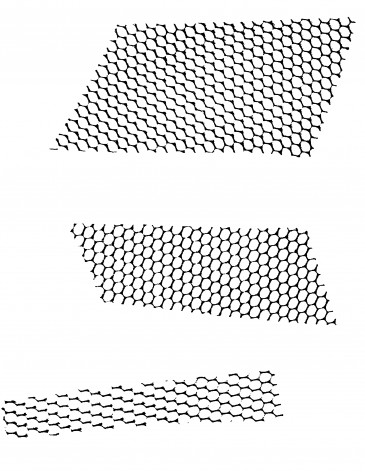
There’s a fecundity and possibility emergent in the Ramzi world. “We all get alienated sometimes…we act in automatic ways, not felt ways of living or being. I’m playing with it, it’s not something I’m obsessed with.” Guillemot muses again with the battlefield metaphor: “For me, my music is like a weapon against zombies…a way to revive humanity when you think it’s lost.”
The sun is insistent when our conversation ends. Dude Chilling is a fine park, but there’s something latent here. We exchange doubts for Montreal and Vancouver, and surveillance, and talk about the animosity one eventually develops towards their hometown. Still, we agree that pessimism doesn’t do much. “Travelling in Southeast Asia made me see this music and life out in the streets and everyone gathering. And it creates so much more life. There’s some lack of space [In Vancouver] but there’s a lot of potential for more. So I’m really optimistic.”



